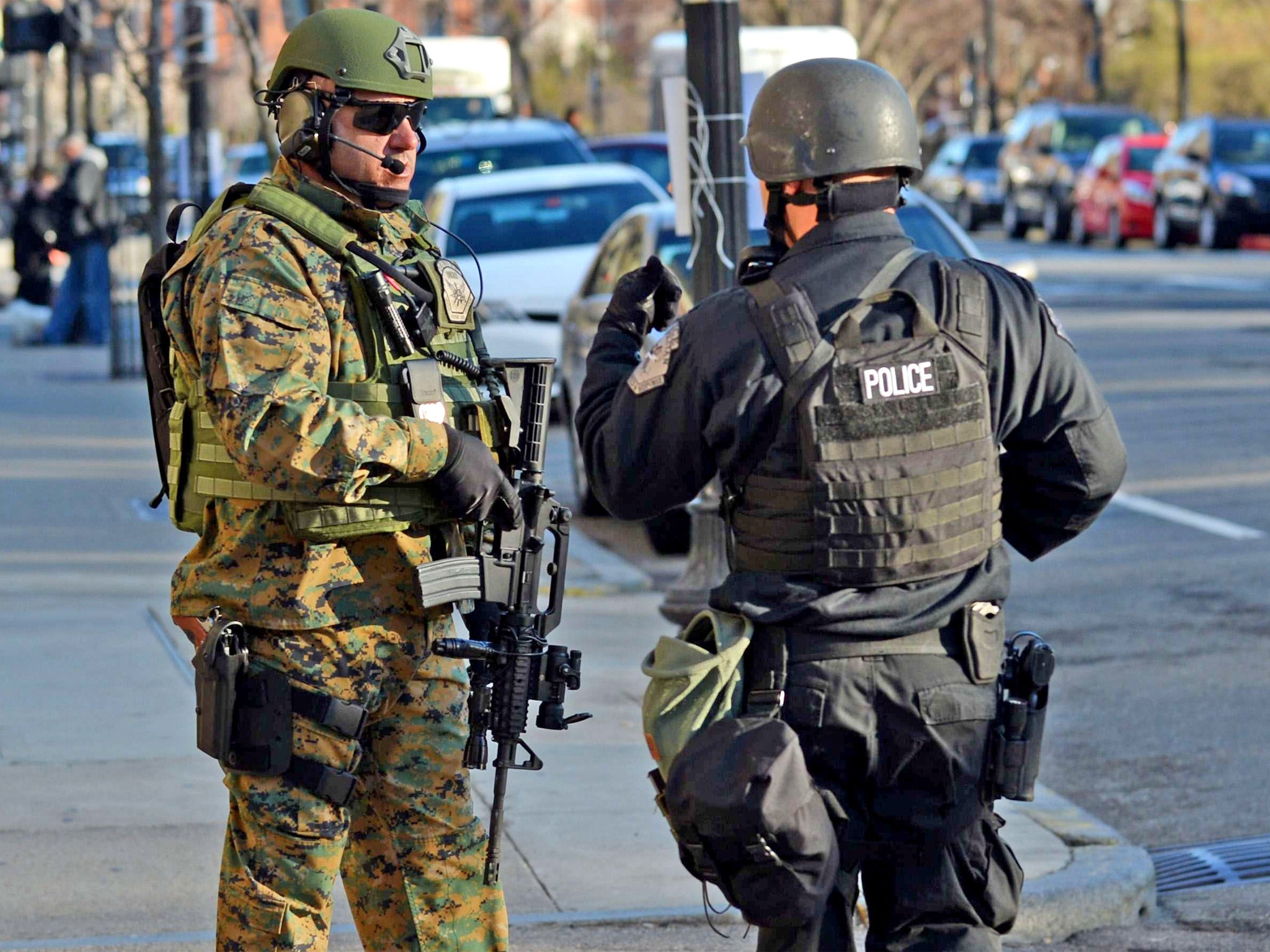Boston Marathon bombings: Security was high - so what went wrong?

When Rene Cappas drove his delivery van into downtown Boston on Monday, just hours before the city’s annual marathon was hit by two explosions, he was stopped at a checkpoint and questioned about where he was heading. “They asked me what building I was going to, where I was taking the package, what floor,” he said. Police officers, out in force to patrol the annual event that draws an estimated half a million spectators, also cast an eye inside Mr Cappas’ van.
Harry Flores, who arrived in downtown Boston via public transport, faced no such scrutiny. “There was a lot of security - there is always a lot of security. But I didn’t see any checkpoints,” he said. In contrast, today, with security stepped up across the area in the aftermath of the bombings, his bags were searched as he got on the train.
Other spectators who made their way along the final mile of the marathon also told The Independent that, while they had encountered a significant police presence on Monday, they had not been stopped or their bags searched as they made their way into the heart of the city.
As attention turns to what could have been done to prevent the bombings, and how the security regime might be enhanced in time for next year’s race, the difference between Mr Flores’ and Mr Cappas’ experience on Monday is likely to be among the issues that will be debated among officials.
The security exercise ahead of the event was already vast. In addition to local and state police, authorities had drafted in the support of around 460 members of the Massachusetts National Guard, who were on duty along the marathon route of just over 26 miles (since the explosion, their numbers are reported to have swelled to around 1,000. Many could be seen patrolling downtown Boston today, wearing military-style fatigues and carrying what appeared to be heavy arms).
Meanwhile, before the explosions, bomb detection teams twice swept the race route on Monday, Boston’s Police Commissioner, Ed Davis, said today. Medical tents had been set up, and ambulances were on call.
Will Lachabel, a local taxi driver, said the police presence was visible weeks before the event. “There was heavy security. Its an important area where it [the explosions] happened. All the big hotels and offices are there,” he said. Mr Lachabel said his cab had been stopped and checked by officers only days before the marathon.
David Black, who participated in the race, and was about a kilometre away from the finish line when the first explosion occurred, also spoke of the heavy police presence in the city when he arrived to take part from Detroit a couple of days ago. “Hindsight is 20-20,” he said. “But I don’t fault them [the authorities] for not doing enough. There was clearly a lot of security around Boston,” he added. Like Mr Flores, Mr Black, who did not drive while in Boston, did not encounter a checkpoint. “But I felt safe - absolutely.”
Rudi Boosten, a runner from Holland who in the past has participated in other major marathons, including New York’s, and who had just crossed the finish line when the explosions occurred, said the limited screening for people arriving foot was not unusual. “Maybe they’ll do it next year now,” he said.
As with other big public gatherings across the US, and in many other parts of the world, security at the Boston Marathon was beefed up in the wake of the terrorist attacks of September 11, 2001 - but Mr Flores, who has been attending the race for decades, said that a lot more would have to be done to restore the sense of security that was shattered on Monday afternoon. “I don’t know what they do - but they will have to do more. I can see all these guns now. They could bring them out earlier, I don’t know.”
Join our commenting forum
Join thought-provoking conversations, follow other Independent readers and see their replies
Comments
Bookmark popover
Removed from bookmarks